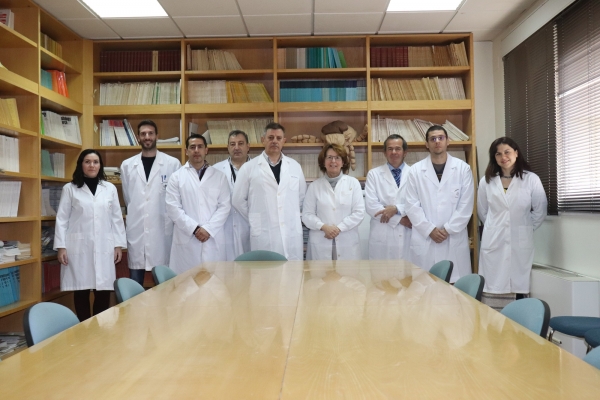Helminth parasites are often a real headache for the livestock industry. These organisms are responsible for major losses, not only because they trigger a decrease in the production of meat, milk and wool, but because they make animals more susceptible to other diseases too. In 2017 'Fasciola hepatica' alone, a pathogen that mainly affects ruminants, caused more than three billion dollars in losses in the livestock sector worldwide.
The current control of these organisms is based on the use of drugs, medicines called anthelmintics, whose effectiveness is waning due to the resistance the parasites are developing. Their protection is not long-lasting, so they must be used with a certain periodicity, making them expensive. In addition, they have a long period of suppression in the animal infected, which increases the risk of traces of these drugs reaching human beings through the consumption of livestock products.
In response to this, the development of effective vaccines has become a real challenge for veterinary science, a complex one because these are multicellular pathogens that modify the host's immune response, flourishing in the infected animal. Moving forward along this line has been the main objective of the Paragone project, an international effort comprised of 17 partners and in which the University of Cordoba has participated through the AGR 262 and AGR 133 research groups.
The project has studied the parasites that account for the greatest losses in the main production animals, like cattle, sheep and chicken. Ostertagia, cooperia, teladorsargia, psoroptes and dermanyssus are some of the pathogens studied. Some very promising candidate vaccines have been developed for them, offering a level of protection greater than 50%.
In the case of the Teladorsargia parasite, it has been possible to produce a vaccine through a cocktail of seven proteins. It is a candidate that has already progressed to the demonstration phase and that, according to the project's head at the University of Cordoba, José Pérez Arévalo, stimulates "good levels of antibodies", so it could be commercially viable in a few years.
The University of Cordoba has focused on the role of 'Fasciola hepatica', one of the most harmful parasites, mainly affecting ruminants through water or raw plants, which act as an infection vehicle. The group has demonstrated that immune response is modified from the first day the infection takes place. Specifically, the parasite stimulates an essential protein –Fox P3–responsible for sending the body's defensive system a false message that everything is fine, so that it can thrive. This is information that could be an important step to improving the efficacy of future vaccines and to select targets.
In any case, as Professor of Veterinary Science José Pérez Arévalo points out, the research line will continue over the next few years with the aim of better understanding the mechanisms that these parasites use to modify immune response, and to ascertain the molecules that they use to "deceive" their hosts. The challenge: to develop vaccines with a high degree of protection that thwart parasites and prevent the millions in economic losses they generate.


